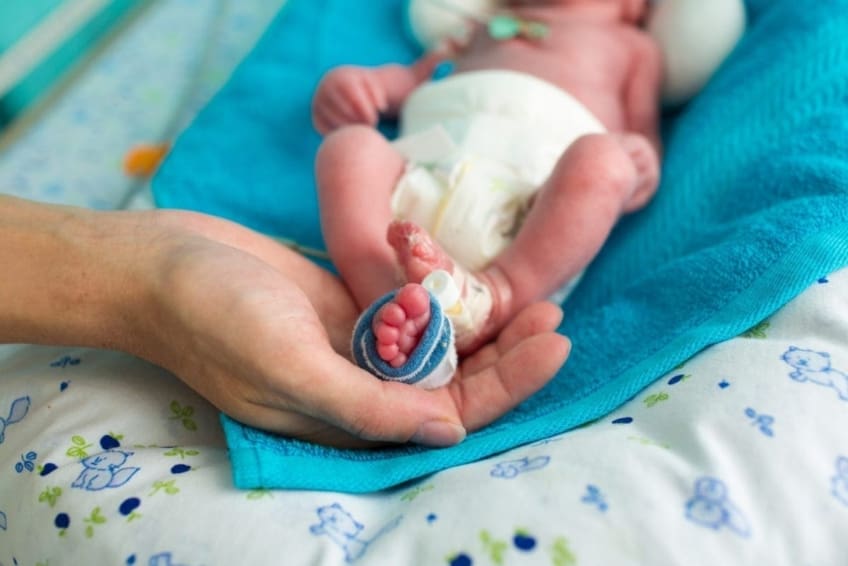
What is necrotizing enterocolitis?
Necrotizing enterocolitis (NEC) is an intestinal disease. Intestinal tissue becomes inflamed and then dies. It occurs mostly in premature and sick newborn babies. It often begins within 2 weeks of birth when the baby is still hospitalized.
Symptoms of necrotizing enterocolitis
NEC symptoms may begin all of a sudden or over time. Common symptoms include:
- Swollen stomach
- Stomach pain
- Bloody stool
- Change in stool amounts or times
- Diarrhea
- Vomiting
- Feeding problems
- Decreased energy
- Changing body temperature
- Uneven breathing, heart rate, or blood pressure
What causes necrotizing enterocolitis?
There is no exact cause for NEC. The main source is intestinal bacteria. If your baby is premature, their immune and digestion systems are weaker. Another trigger could be a decrease in blood or oxygen to the intestine. This can damage tissue and lead to NEC. Full-term babies who have congenital heart disease also can get NEC.
How is necrotizing enterocolitis diagnosed?
Your doctor can diagnose NEC. They will perform a physical exam to check for symptoms. They will likely do a stomach X-ray to check for inflammation or air in your baby’s intestine. Lab tests, such as blood, urine, and stool, are likely too. These tests can determine the severity of the condition.
Can necrotizing enterocolitis be prevented or avoided?
It is hard to prevent or avoid NEC. However, there are factors that can increase your baby’s risk for NEC, including:
- Premature birth
- Illness
- Blood transfusion
- Formula instead of breast milk
- Exposure to an outbreak
- Prolonged antibiotic exposure
Necrotizing enterocolitis treatment
A range of options is available to treat NEC. To start, your doctor will want to give your baby’s intestine a rest. Instead of normal feedings, they will receive nutrition through an intravenous tube. Your doctor may need to relieve gas in your baby’s bowel. This is done by inserting a tube into the stomach. Antibiotic medicines treat the infection. Your baby may need to use a breathing machine if breathing becomes difficult. Severe cases of NEC may require emergency surgery. This is if the weakened, infected tissue creates a hole in the intestine. The surgeon will remove dead tissue and repair the bowel and intestine.
Living with necrotizing enterocolitis
Babies who have NEC require treatment and ongoing monitoring. NEC can be cured and have little or no lasting effects. Some babies may have future problems. This includes the intestine or digestive tract. They can have blockage caused by abnormal intestinal tissue or scar tissue. Another problem is called short-gut, or short-bowel, syndrome. There also is a risk of death, especially for premature babies.
Questions to ask your doctor
- Are premature babies screened for necrotizing enterocolitis?
- How long does NEC last?
- What are the complications or lasting effects?
![]()
Copyright © American Academy of Family Physicians
This information provides a general overview and may not apply to everyone. Talk to your family doctor to find out if this information applies to you and to get more information on this subject.









